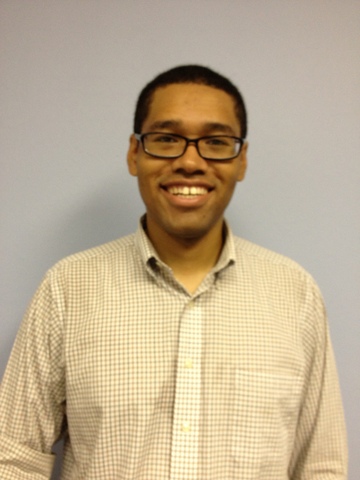The Hogg Foundation works to foster the capacity of individuals and organizations to engage in effective mental health advocacy. Through the Hogg Mental Health Policy Fellow Grants program, organizations receive grants to hire in-house policy fellows, individuals who receive extensive training and experience in mental health policy work.
In his own words, Jacques Ntonme, Mental Health Legal Fellow for Texas Appleseed, tells us what his Hogg-funded fellowship has meant to him personally and professionally.
- Tell us a bit more about your background. How did you decide to get into mental health policy work? I initially became interested in mental health policy in my early 20s, where I learned about the nexus between mental illness and homelessness. Around this time, I also was diagnosed with depression and anxiety. The mix of a personal connection to mental illness and an interest in social justice led me to law school, where I responded to complaints about civil detention conditions, assisted in the representation of individuals facing civil commitment and prepared SSI/SSDI appeals.
- What have you learned from working with legislators and their staffs at the Capitol? Good personal relationships are very important, because getting honest and early feedback is critical. Also, other stakeholders and coalition organizations are extremely important for getting feedback and helping guide a newbie through the process and personalities.
- Personally, what did you accomplish this session that you are most proud of? HB 1948 (Burkett)/SB 718 (West) reformed the mental health treatment process for minors. We had some hiccups along the way, but were able to reach compromise. I was very pleased with the final product.
- The Capitol can be a physical and emotional grind. Did you find that to be the case, and if so, what helps you deal with it? In the middle of the session, around March, there was anxiety over getting hearings for the bills. That was slightly discomforting, but manageable. May was tough, as many of the bills we were interested in started dying, i.e. running out of time to get passed. That was very emotionally frustrating. We came into May with six bills alive, and four of them died in the course of two and a-half weeks. Exercising and talking with the other fellows helped me calm down and put things in context.
- What has been your favorite part of your fellowship at Texas Appleseed? The session was a lot of fun; I enjoyed the debates, regular meetings with other advocates and hustling to get meetings with legislative staff.
- In what ways have you grown since you first started at Texas Appleseed? I have become more mindful of the audience to which I am speaking. Perhaps unsurprisingly, mental health advocates and legislators have very different levels of familiarity with and natural predisposition towards the mental health care system reform. I have become more patient and more collaborative.
- How do you plan on using what you learned during your fellowship in future work? I plan to continue to work with advocates in other organizations and potentially spin off research I have done into academic publications or white papers.

